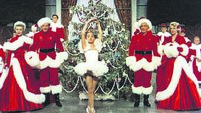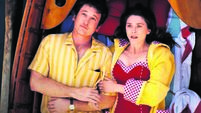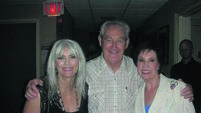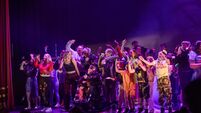From Dakar to Da Jazz in Cork
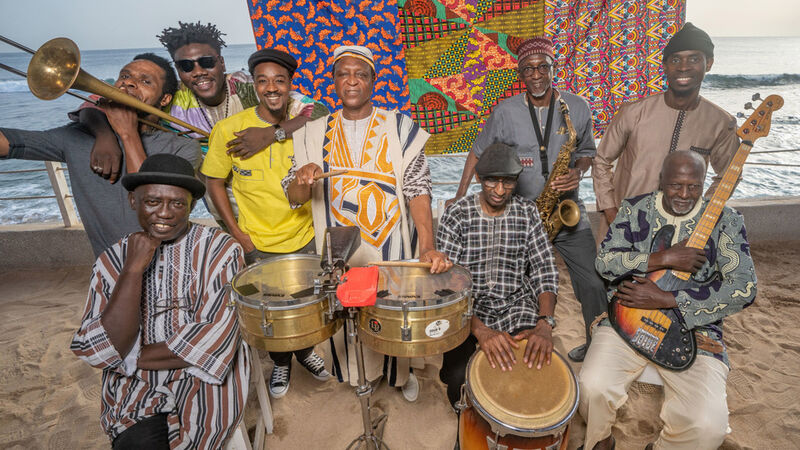
Orchestra Baobab play a double bill at the Guinness Cork Jazz Festival.
Whenever and wherever Orchestra Baobab we become a cultural embassy for Senegal”, Mountaga Koite, who plays drums and timbale in the internationally lauded group, is fully aware of the cultural importance of their music. Speaking ahead of their concert as part of the Guinness Cork Jazz Festival in Cork Opera House, he gave an overview of the band’s career. In many ways the band’s history parallels Senegal’s own development over the last 50 years. They were formed in 1970 by former members of the Star Band, which was the resident band of Dakar’s Miami Club. Other former members of the Star Band went on to become some of the most influential people in the country and continent’s music, one being the international star Youssou N’Dour. Orchestra Baobab were formed when they were invited to become the house band of another nightclub in Dakar, The Baobab Club – named after the Baobab Tree (Adansonia), which is indigenous to the area. Immediately, what made them stand out was how diverse their line-up was. They were made up of vocalists and musicians from many different backgrounds, such as the South of Senegal, a Niger-Congo ethnic group in Western Africa, the Togolese region, Guinea and Mali. It was a combination of people from different cultural histories, with different dialects, languages and musical styles, particularly fusing elements of both the Northern and Southern Senegal regions. Mountaga makes a point that the music they created wasn’t just informed by where they came from, but also what they were hearing from imported records.
“The music we make is from our country, but our music is already something worldwide, because there are a lot of musicians that have inspired us, from Johnny Holiday to James Brown. We listened to and studied music from all over the world, and when you actually listen to us, it’s a kind of stew, because you also have Afro-Cuban and other elements in our sound, too. It’s a mix, we are moving around the world, we are not alone, we are a part of the world.”
Playing around the world was always very important to Orchestra Baobab, from their very formation, it was an ambition, as Mountaga continued. “It’s our mission, and it’s something we should be proud of. In 1966, there was the festival for the first time in Senegal, and at that festival, there were a lot of musicians from all over the world who came to Dakar for the first time. Seeing all that different inspiration made us want to create our own stuff, to link to other vibes and sounds they were hearing, the freedom of Cuban and the Afro-Cuban music, the West Indies music, the jive and all those kinds of music, and that’s what brings that power to come and showcase themselves. It was like that from those times back then right up to now; we are about to release our new album, called ‘Made In Senegal’, and you can hear all those influences still. So that’s why we can say that from the very beginning of Orchestra Baobab, it has been a kind of Senegalese embassy everywhere where we are!”
When the band first started, they quickly became one of the most vibrant and prolific exponents of African music, releasing 12 albums in the 1970s alone. By the late 1980s, a lot of the original band members had gone on to form or join other groups, so Orchestra Baobab effectively finished, but their music kept appearing on various reissues and compilations. Following the increased interest in ‘world music’ from the mid 1990s onwards, and the renewed interest in ‘old bands’ inspired by the resurgence of Buena Vista Social Club, Orchestra Baobab performed again in 2001 in Barbican London. Following that there were TV appearances on influential programmes such as ‘Later... with Jools Holland’ and the ‘Late Show with David Letterman’; they were the subject of a VH1 documentary presented by Dave Matthews and they appeared on the Johannesburg leg of the series of Live 8 – a series of concerts to raise awareness and funds to end poverty – in 2005. They revisited and recorded some of their older material and classic songs.
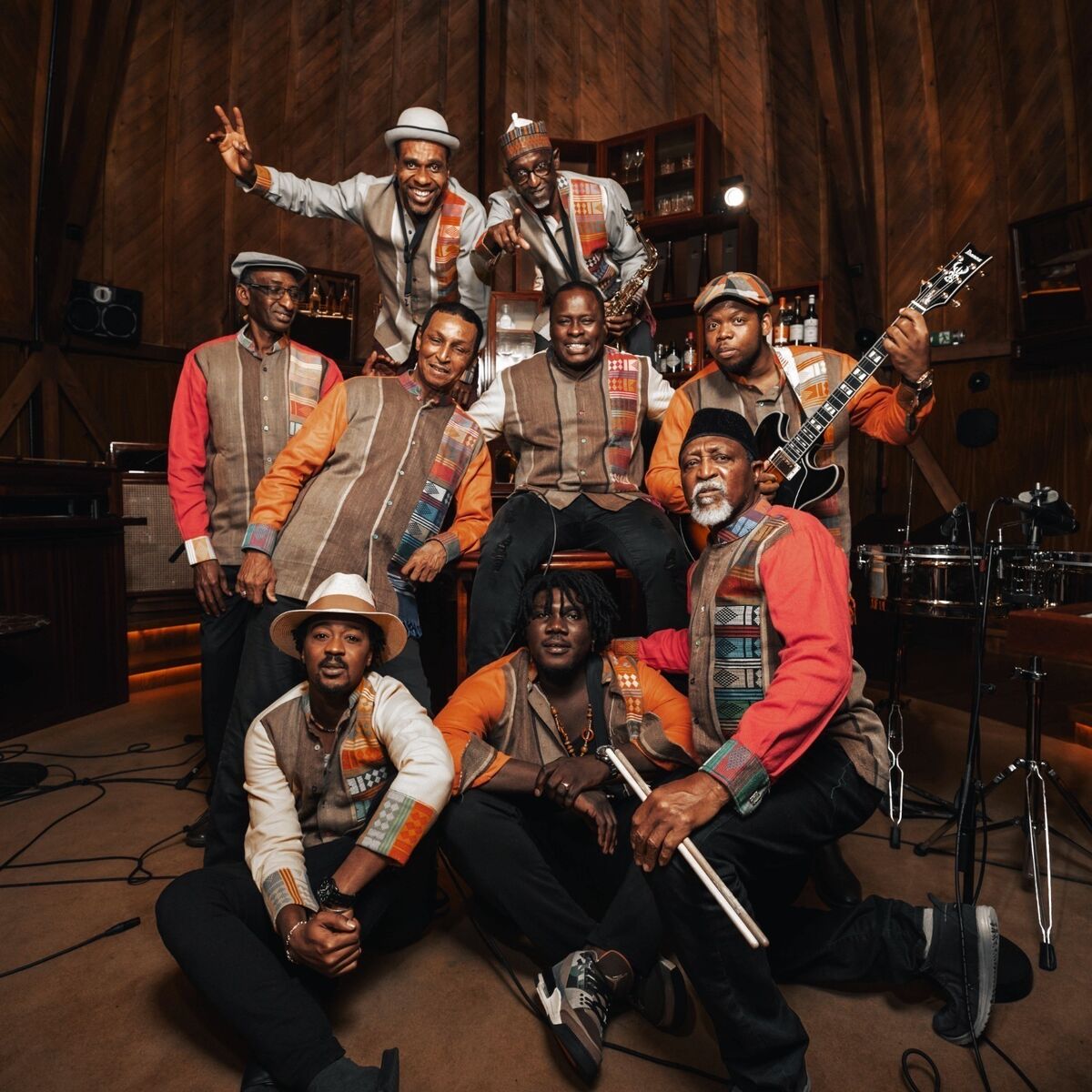
Sadly, over their 50 years plus of existence, many of Orchestra Baobab’s original members have passed away or retired by now, but their longtime saxophonist Thierno Koité (Mountaga’s brother) took over as its new musical director. Mountaga and Orchestra Baobab credit an Irish connection as a huge part of that resurgence.
“We got a manager in 2001, and she was from Ireland, a woman called Jenny Cathcart (who has also written a book ‘Notes from Africa’ about her experiences and insights of being on the ground and helping present and develop African music). She was the one at that time in charge of the band, and she had us come to Irish audiences. And we were surprised, but really happy, to see that the Irish people relate to their music. They were really happy to see the orchestra, and we made them dance, we made them sing, and they related to that. So that is the main memory I have of the Irish.”
When put to Mountaga that perhaps since both Ireland and Senegal were colonised – Senegal only became fully independent in 1960 – both countries put an increased value on our music and culture being celebrated, a point which struck a chord with him. “It’s a kind of common destiny. It was a surprise at first for Orchestra Baobab to see that there’s a link between us and your country, because they seem to be so far apart, but definitely the fight and spirit you showed is held in the same regard in Senegal.”
Sharing the spirit of their music worldwide is very important to Mountaga, but he is also aware that mentoring and teaching the next generation of Senegalese musicians is a big factor for him, too. Mountaga found a parallel in how the next era of Orchestra Baobab will work in an old Western movie of all places: “In this film, there was an Indian tribe, the invading cowboys killed all in the tribe except him, and him alone. They caused a lot of damage. He wasn’t even 16, and he was sent to very distant family members, and his cousins brought him in. He was still the youngest one there, still a child, but from pictures and stories, he is able to absorb all the culture from the people he was from. Our band is also like that; everyone at some point dies, and the music changes as new songs are written, and new crowds emerge that relate to this music. There is always a way to revive and learn. My son is actually one of the singers in Orchestra Baobab, so that’s his big brother, his son and another cousin playing together.
Mountaga continued on this point. “As we say in Senegal, the Baobab Tree never dies, because when one falls, new roots start and from there another tree rises again. My role now is to lead the way and bring the new generation where they have to go, even if I know I will not be able to go all along that journey. We all do our part, and that makes us all proud. ‘Made In Senegal’, the new album we made, is all about that, us altogether bringing a new energy. That new energy doesn’t mean a change in style, even though the world changes, and we change with the world altogether. Something like Orchestra Baobab will always be Orchestra Baobab. We don’t have keyboards, we still have the same instrument lineup, but the music language itself is something that will always find its way.”
As well as using the Baobab Tree as a metaphor for how the band’s values work, Mountaga also sees the tree, which their group is named after, also has a practical connection to their lives: “the fruit of the tree, it is a medicine, a natural antibiotic, and makes it really a superfood. And from the bark of the tree, we can make rope, and the leaves of the tree, we use them in our food. We don’t really use the material in any of Senegal’s traditional instruments, but you can see how it suits our structures perfectly.”
- Orchestra Baobab play a double bill with Annie & The Caldwells on Sunday, October 26, at 7pm. Tickets www.corkoperahouse.ie
